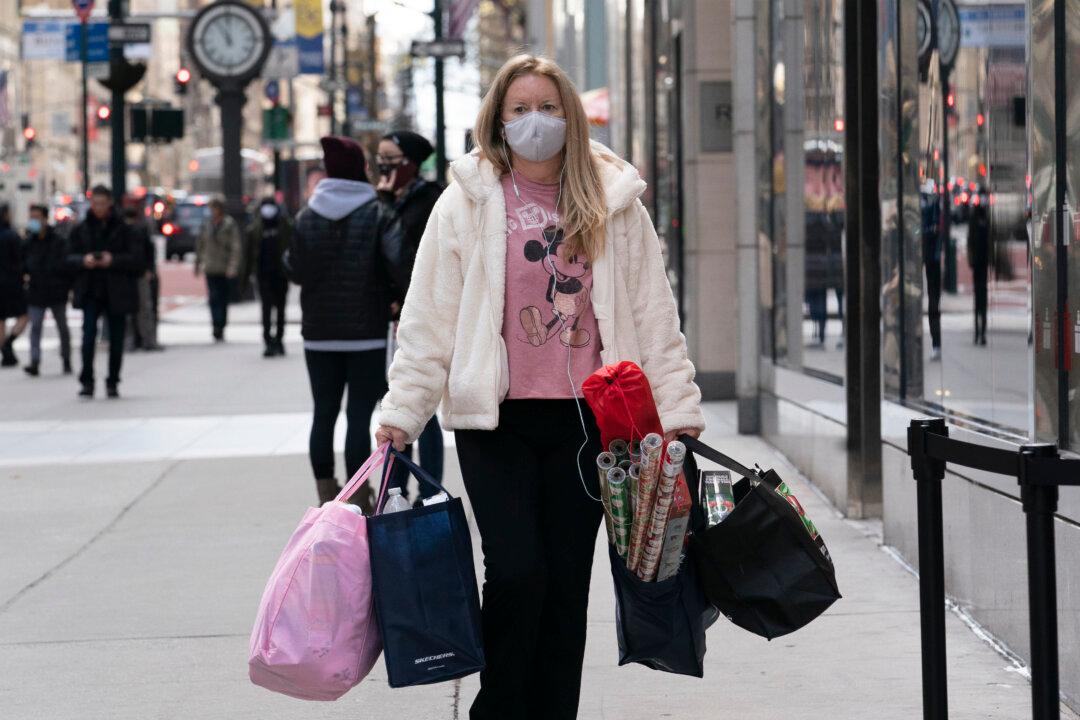Americans plan on spending more this holiday season despite lingering concerns about inflation, shortages and high prices, with many fearing the economy will fare worse next year, according to a recent CNBC survey.
Based on data from the quarterly CNBC All-America Economic Survey, people are willing to spend $1,004 on average for buying gifts, an increase of about 13 percent from 2020 and the highest in three years, indicating a slight but shaky return of consumer confidence and disposable income. Back in 2018, the number was at $1,118, while in 2014, it was $765.





